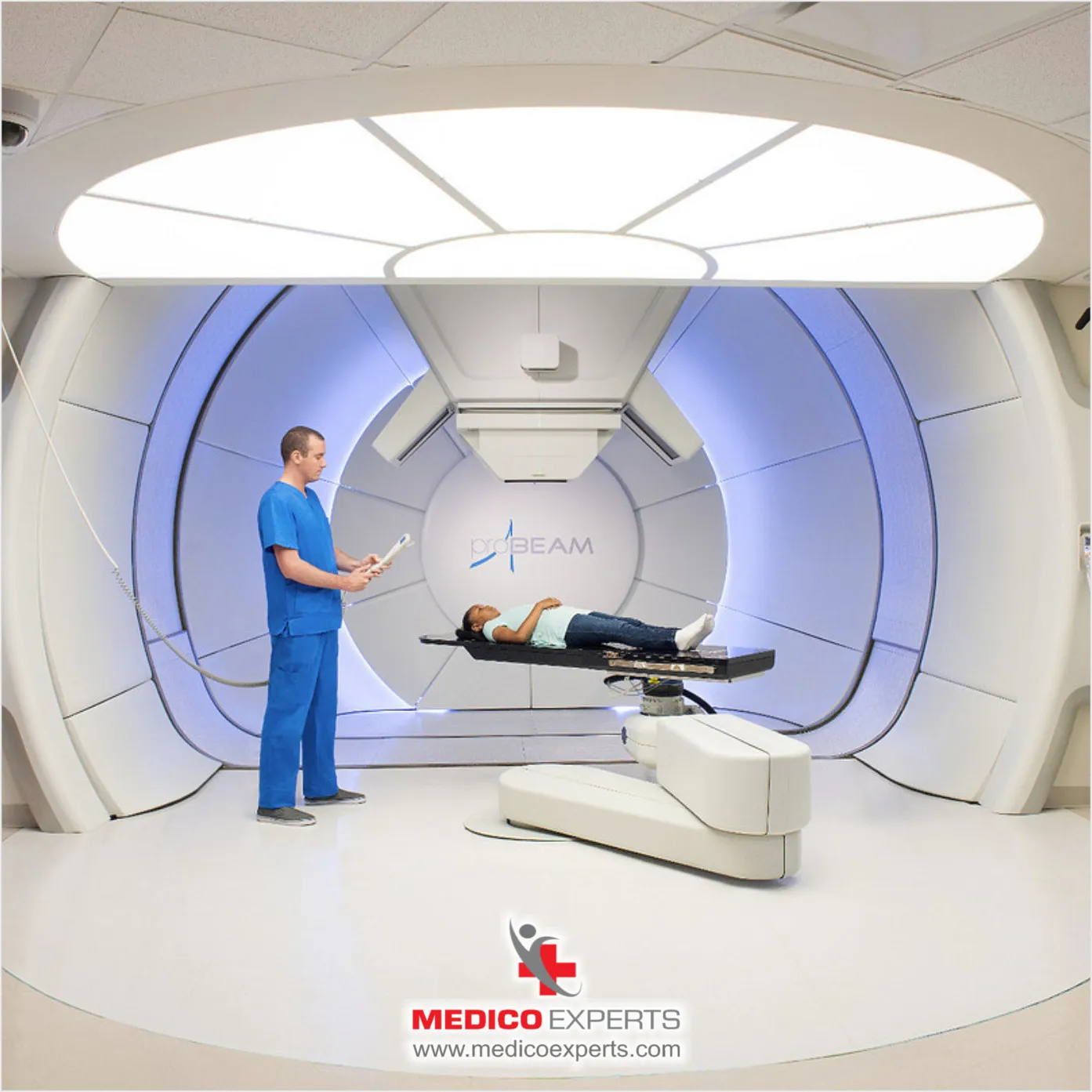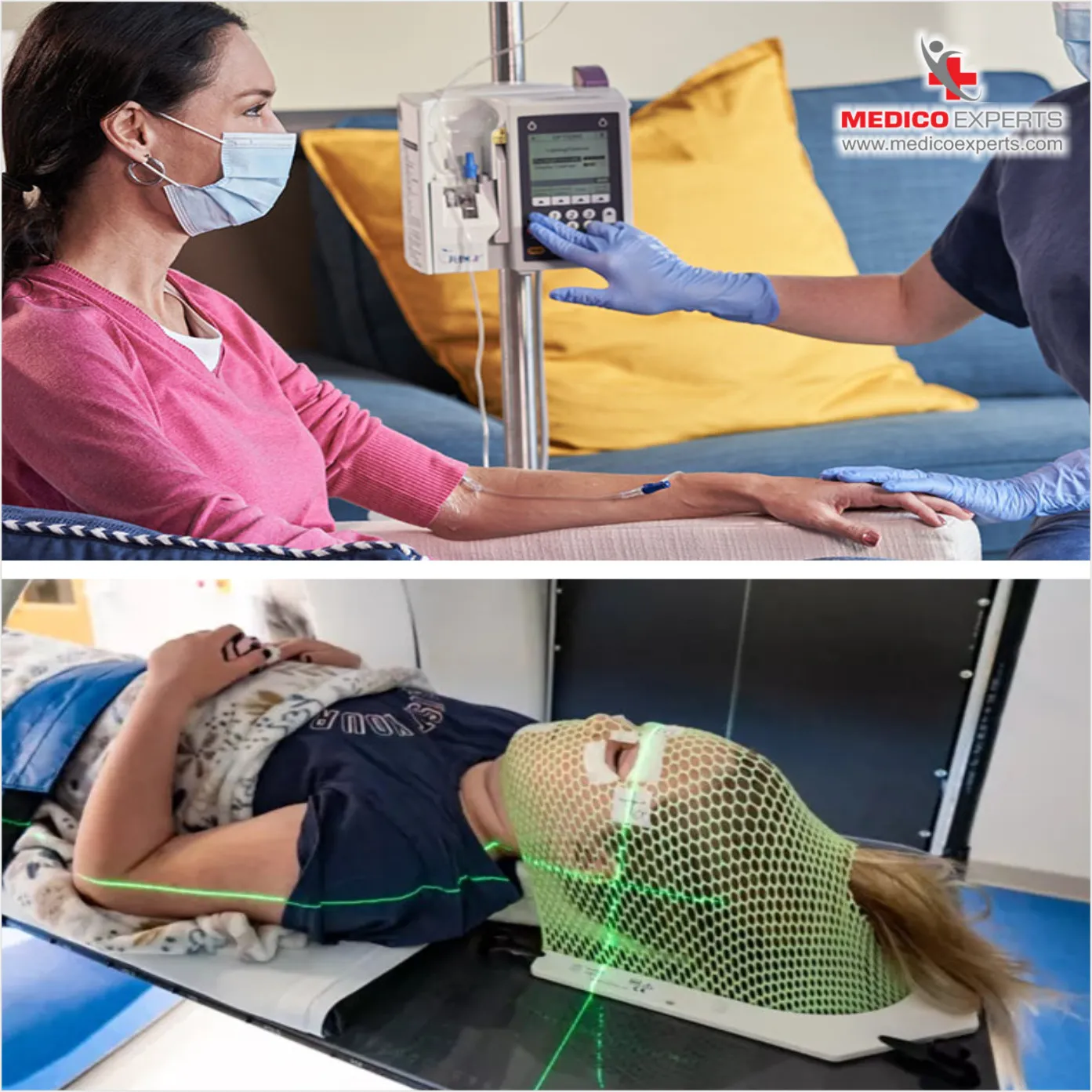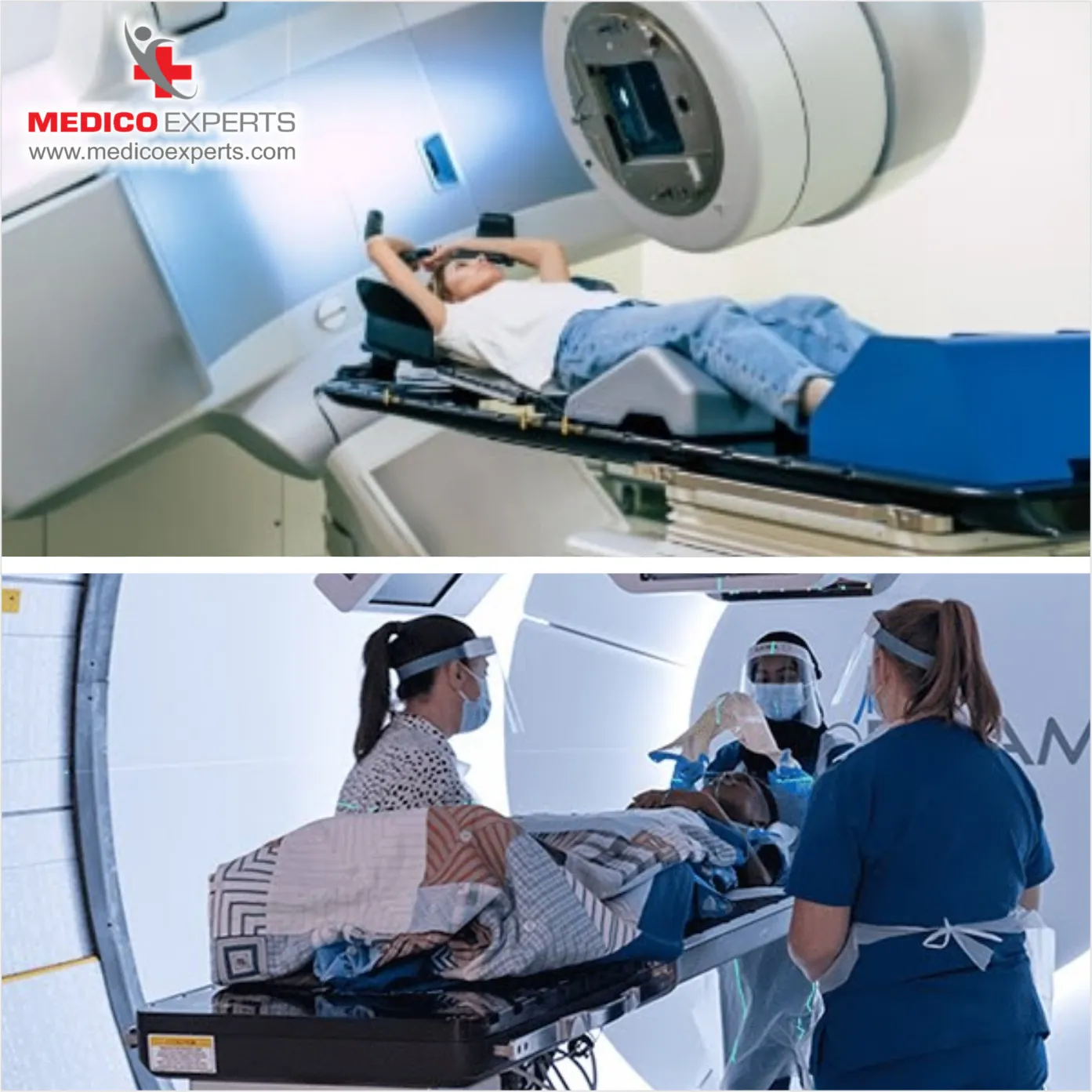Proton Therapy Benefits: Why You Should Choose It?
Is there a cancer treatment that works without harsh side effects?
That’s probably the first question that comes to your mind when you or your loved one needs to undergo cancer treatment. More so, conventional radiation comes with a long list of side effects like fatigue, damage to healthy tissues and nausea.
This may scare you to the core.
But you need to know that there is a safer and more effective treatment option. It’s proton therapy. Its precision only targets the tumor and protects the healthy tissues. This is one of the main proton therapy benefits.
We have created this article to inform you about the many proton therapy benefits and help you choose a treatment that will increase your health and overall well-being.
Let’s find out more about the proton therapy benefits.

Top Proton Therapy Benefits
Proton therapy is a safer cancer treatment option. It targets cancer cells precisely, reduces side effects, and helps patients recover better. Additionally, you can work, exercise, and go about your daily life while the treatment continues. Let’s learn about the proton therapy benefits and why it is a better choice for you:
Proton beam therapy is super accurate. It only targets the cancerous cells and spares the healthy ones surrounding it.
This precision in targeting the tumor is the result of using proton beams, which are positively charged particles. Unlike conventional radiation that uses photon beams, protons stop at a specific point within the tumor.
Over the years, proton therapy has advanced and now we have pencil beam scanning. It increases the precision even further. PBS is a highly precise form of proton therapy that uses narrow electronically guided proton beams to deliver radiation.
By focusing directly on the tumor or cancerous cells and leaving the healthy tissues, proton therapy reduces the chances of side effects.
It reduces side effects like fatigue, skin irritation and damage to nearby organs.
Lesser side effects mean you will have a better overall well-being and that will lead to improvement in your quality of life. It also helps you achieve faster recovery and fewer complications.
Proton therapy is ideal for cancer patients because it offers a highly targeted approach to treating tumors. Conventional radiation can damage the nearby tissues but PT safeguards them and only targets the cancerous cells.
This reduces the risk of side effects and long-term damage and makes the treatment easier to tolerate for cancer patients. It’s especially beneficial for patients with cancer in sensitive areas like the brain, spine, and organs near the heart.
Cancer patients can achieve better overall well-being with proton therapy. They can get a much easier treatment experience and recover faster without complications. When you have fewer side effects and complications, you can focus on healing and returning to your daily lives sooner.
Proton therapy is ideal for children with cancer. Conventional radiation therapy, chemotherapy, and traditional radiation are common treatments used for pediatric cancer. However, this treatment option can cause complications for a child that may include growth problems, hormonal issues, learning difficulties, or even secondary cancers later in life.
Proton therapy is precise and it attacks the tumor directly without harming healthy tissues. This is especially important for a child as their body is still growing and developing. It also reduces the risk of long-term complications like issues with brain development for kids who are undergoing treatment for a brain tumor.
If they opt for it, most of them will get it every day for five to six weeks, and each session may take 30 minutes to an hour, depending on whether the child needs sedation. As proton therapy is gentler, kids respond to it better, which increases their chance at a healthier future.
Proton therapy is effective in treating hard-to-treat cancer, more so, cancer that is located in complex and sensitive areas. Its precision is important for sensitive organs like the brain, spine, heart, or eyes.
It can directly deliver a high dose of radiation to the tumor in complex cases like brain tumors, skull-based tumors, or pediatric cancers. It safeguards the healthy cells and tissues, which reduces the risk of long-term side effects like cognitive impairment or growth issues.
It is also beneficial for recurrent cancer where conventional radiation therapy can be harmful due to previous exposure.
Proton Therapy vs Other Treatments
We have advanced cancer treatments now and also have many options. Let’s compare them and understand them better:
Proton Therapy vs Chemotherapy
Chemotherapy uses powerful drugs to destroy cancer cells or stop them from growing. Though it can be effective, it often affects the entire body.
After chemotherapy, some people experience side effects like hair loss, fatigue, and a weakened immune system as some strong drugs are used in it.
Proton therapy needs no such drugs. It is a type of radiation treatment that can deliver radiation directly to the cancer cells and protect the healthy cells from radiation damage. This therapy doesn’t use drugs for cancer treatment.

Proton Therapy vs Radiation Therapy
Conventional radiation therapy uses X-rays or photons to target the tumor. It works effectively, but it can also affect healthy tissues around the tumor. This can result in side effects like skin irritation, fatigue, and long-term damage to other organs.
Proton therapy is also a radiation therapy, but it is a more advanced one. Protons have a unique physical property. They can be controlled to release their energy on the tumor directly and then can be stopped. The same cannot be done with photons that are used in conventional radiation therapy.

Proton Therapy vs Immunotherapy
Immunotherapy and proton therapy follow different approaches. Immunotherapy focuses on strengthening your immune system to fight disease. It boosts your body’s ability to recognise and find the cancer cells and then attack them.
Proton therapy therapy follows a completely different approach. It destroys the cancer cells with radiation beams. Patients who don’t show a good response to immunotherapy can find a better option in proton therapy. It can be combined with immunotherapy to get a better outcome for cancer treatment.

Takeaway
At MedicoExperts, we understand that making decisions about cancer treatment is hard. There are many proton therapy benefits such as precision, fewer side effects, and protection of healthy tissues. That’s why it is excellent for cancers in sensitive areas like the brain or spine.
But you may still have questions like “Is it right for me?”
We can help you in finding that out.
How?
We connect you with top specialists worldwide. We will also guide you through your options, and support you throughout your treatment. You have zero stress and 100% focus on your recovery process.
With MedicoExperts by your side, you can make confident decisions and focus on what matters most.

Take the first step toward a safer, smarter cancer treatment plan. Connect with MedicoExperts today to know your options and get personalized guidance from top specialists.
Frequently Asked Questions (FAQs):
Q1. Who needs proton therapy?
A. Proton therapy is the best treatment for treating cancer that has not spread and tumors which are near critical organs like the brain, heart, lungs, and spinal cord.
Q2. What is the success rate of proton therapy?
A. A study conducted at the University of Florida tested 212 patients with proton therapy. The results showed that 99% of people with low-risk cancer had their cancer under control. 99% of patients with intermediate-risk cancer also had their cancer under control. 76% of high-risk cancer patients also had their cancer under control.
Q3. What happens after proton therapy?
A. After being treated with proton therapy, most patients can go home and continue with their daily activities. You need to visit your doctor according to your post-treatment follow-up schedule. Your doctor may ask you to have tests to check how the treatment has been working on the tumor.
Q4. Which cancer can be treated with proton therapy?
A. Proton therapy can be used to treat brain tumor, breast cancer, eye cancer, head and neck cancer, breast cancer, and some pediatric cancers.
Q5. Which cancers are 100% curable?
A. Prostate cancer, testicular cancer, melanoma, thyroid cancer, and early stage breast cancers are 100% curable.
Q6. Do proton therapy benefits include fewer post-treatment complications?
A. Yes, proton therapy benefits include fewer post-treatment complications due to its precise tumor targeting, which reduces damage to nearby organs and lowers the risk of chronic side effects.
- https://www.pennmedicine.org/cancer/navigating-cancer-care/treatment-types/proton-therapy#:~:text=Proton%20therapy%20uses%20high%2Denergy,Expect%20During%20Proton%20Therapy%20Treatment
- https://pmc.ncbi.nlm.nih.gov/articles/PMC8750423/
- https://www.cancer.gov/news-events/cancer-currents-blog/2020/proton-therapy-safety-versus-traditional-radiation
- https://www.pennmedicine.org/cancer/navigating-cancer-care/treatment-types/proton-therapy
- https://www.mdanderson.org/patients-family/diagnosis-treatment/care-centers-clinics/proton-therapy-center/conditions-we-treat/pediatric-cancer.html#:~:text=The%20ability%20to%20precisely%20target,are%20still%20growing%20and%20developing
- https://www.pennmedicine.org/cancer/navigating-cancer-care/treatment-types/proton-therapy#:~:text=Benefits%20of%20Proton%20Radiation%20for%20Cancer&text=With%20greater%20precision%20and%20accuracy,by%2050%20to%2070%20percent
- https://www.mayoclinic.org/tests-procedures/chemotherapy/about/pac-20385033
- https://www.cancer.gov/news-events/cancer-currents-blog/2020/proton-therapy-safety-versus-traditional-radiation
- https://www.mayo.edu/research/clinical-trials/tests-procedures/proton-therapy#:~:text=Proton%20beam%20radiation%20therapy%20uses,less%20damage%20to%20normal%20tissue
- https://pmc.ncbi.nlm.nih.gov/articles/PMC8489490/#:~:text=Three%20clinical%20trials%20%5B15%5D%20of,%3C%201%25%20and%202.9%25%2C
Relevant Articles For You
Recommendations To Understand Different Treatments

Author Bio:
Dr. Yashashree Joshi – MBBS, MD (Philippines)
Dr. Yashashree Joshi, MD, is a globally-trained oncologist with a robust academic background and extensive experience in pioneering cancer treatments. Dedicated to patient-centered care, she continually integrates the latest advancements in oncology to provide her patients with innovative and personalized treatment plans.
Content Medically Reviewed By MedicoExperts Editorial & Clinically Review Board



